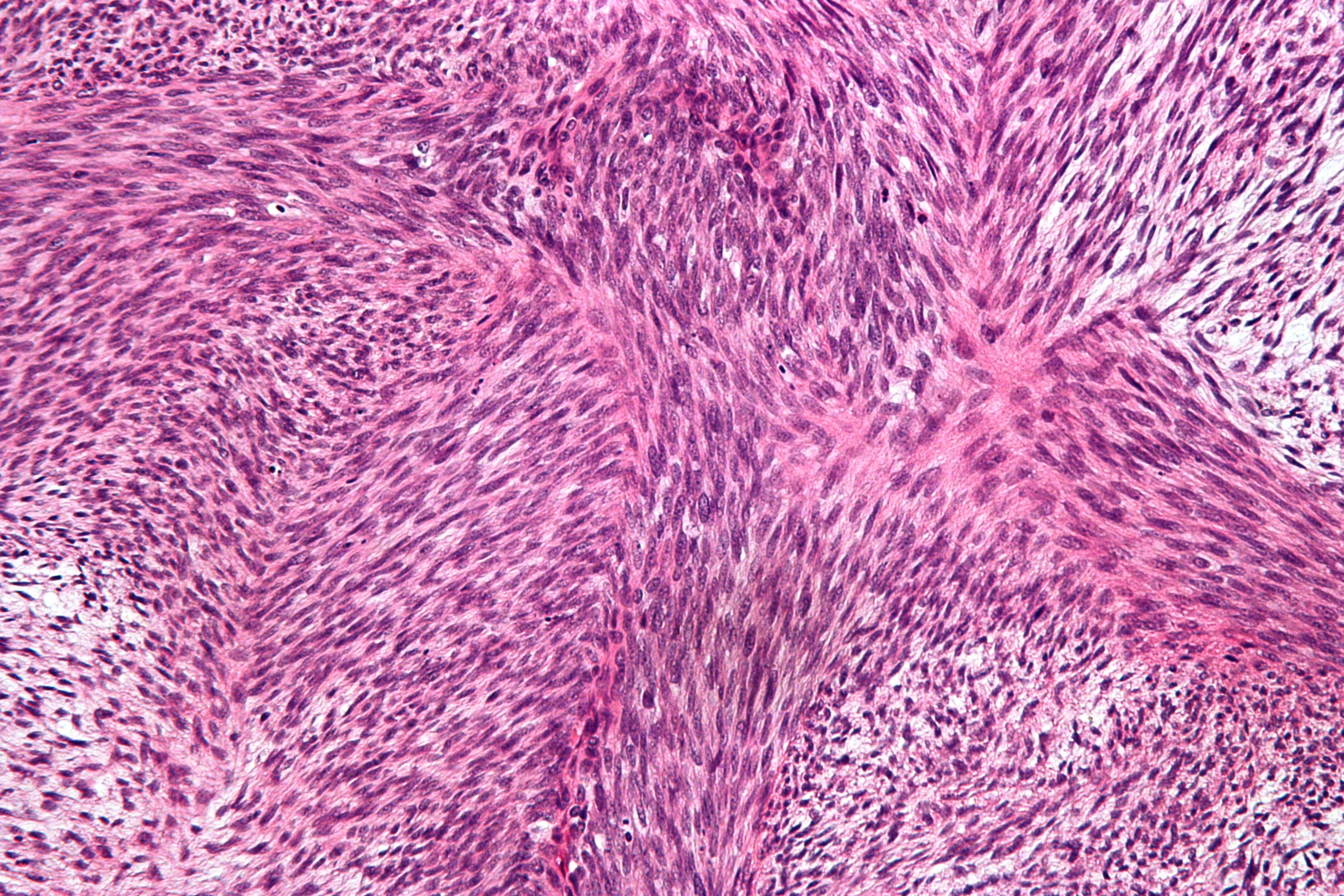Fibrosarcoma (FIBROBLASTIC SARCOMA)
- Malignant mesenchymal tumor derived from fibrous CT and characterized by presence of immature proliferating fibroblasts or undifferentiated anaplastic spindle cells in storiform pattern
- Fibrosarcoma is found most often in dog and cat. Although they do occur in all species.
Mostly develo[ed in adult and aged animals,occasionally will be found as young as six month of age or even younger
No breed predisposition or sex prevalence is found in domestic animal.
%2Fcase%2Fdetail_images%2Fc10807_detail.jpg&w=1920&q=75)
Sites:
- Most common sites in dog-skin and subcutis, oral cavity and nasal cavity
- In cats often in subcutis.
- New plasma can be found in any location in the body, Although internal sites are uncommon.
Gross :
- They are of variable size and some are very large.
- They are usually irregular and nodular in shape, poorly demarcated and non-encapsulated.
- Consistency is firm or fleshy , with soft or fleshy , friable areas .
- When they involve skin and mucous membrane, the surface are often ulcerated and secondarily infected
- On the cut surface new plasma is lobulated, homogeneous,opaque and greyish white and may exhibit striae.
- Reddish brown areas of haemorrhages and yellow areas of necrosis are common.
Microscopic:
- Basic Pattern of fibrosarcoma consist of interwoven bundles of immature fibroblast and moderate no. collagenous fibres
- Tumor is more cellular than fibroma
- Some fibrosarcoma have variable amount of mucinous grounds substance
- Tumor cells are usually fusiform butr maybe stellate in shape
- Undifferentiated tumor may present multinucleated giant cell and cells bizarre shapes
- Nuclei are elongated or ovule and hyperchromatic.
- Mitotic figures are common

- Fibrosarcoma are highly vascular , but blood vessels are poor;y formed and haemorrhages are common.
- Ischemic necrosis of tumor tissue, inflammation and edema are common
Growth and metastasis:
- Most fibrosarcoma demonstrate rapid, infiltrative growth
- They often recur after surgical removal, but metastasis occur in less than one quarter of cases
Fibrosarcoma are divided into :
- Highly malignant :
Fibrosarcoma with many mitotic figure and marked nuclear pleomorphism
- Low grade malignancy:
Fibrosarcoma with few mitotic figure and abandoned collagen production